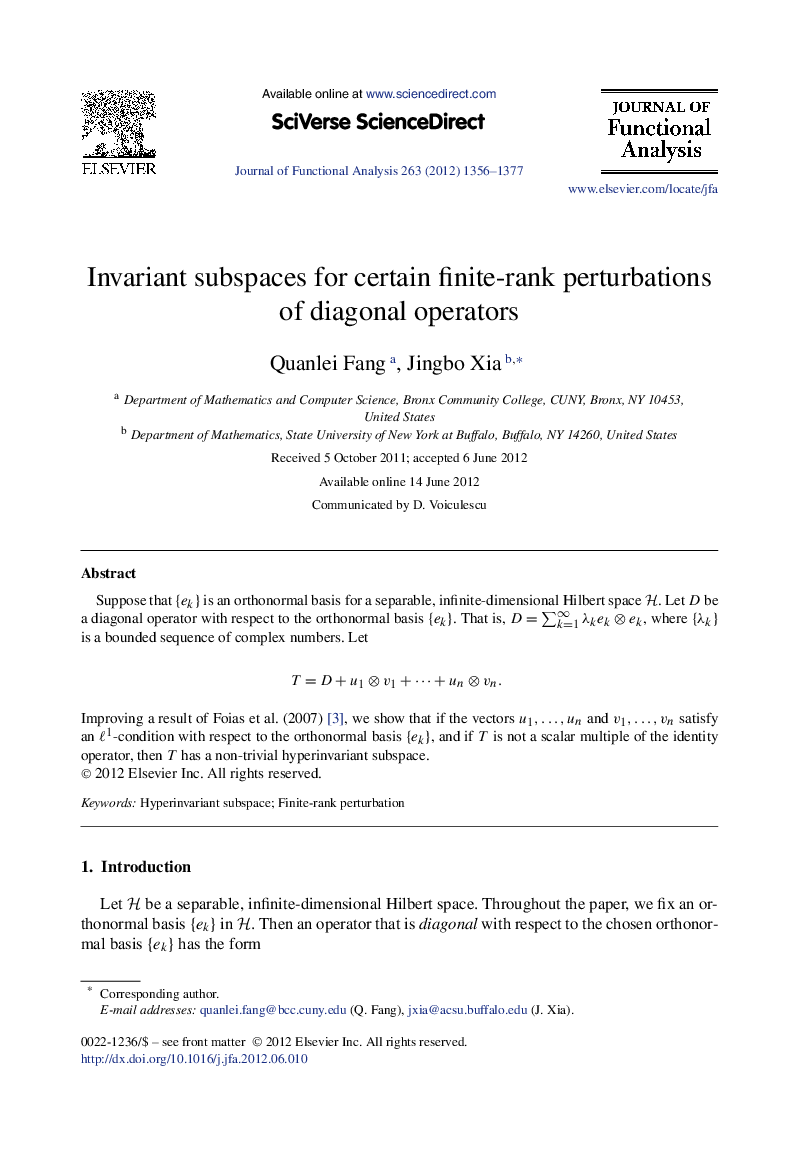| Article ID | Journal | Published Year | Pages | File Type |
|---|---|---|---|---|
| 4590456 | Journal of Functional Analysis | 2012 | 22 Pages |
Abstract
Suppose that {ek}{ek} is an orthonormal basis for a separable, infinite-dimensional Hilbert space HH. Let D be a diagonal operator with respect to the orthonormal basis {ek}{ek}. That is, D=∑k=1∞λkek⊗ek, where {λk}{λk} is a bounded sequence of complex numbers. LetT=D+u1⊗v1+⋯+un⊗vn.T=D+u1⊗v1+⋯+un⊗vn. Improving a result of Foias et al. (2007) [3], we show that if the vectors u1,…,unu1,…,un and v1,…,vnv1,…,vn satisfy an ℓ1ℓ1-condition with respect to the orthonormal basis {ek}{ek}, and if T is not a scalar multiple of the identity operator, then T has a non-trivial hyperinvariant subspace.
Related Topics
Physical Sciences and Engineering
Mathematics
Algebra and Number Theory
Authors
Quanlei Fang, Jingbo Xia,
